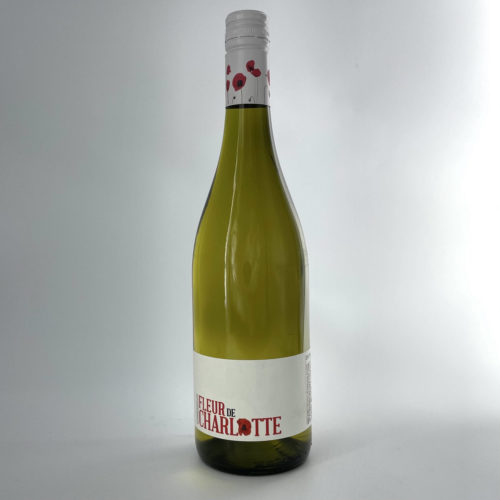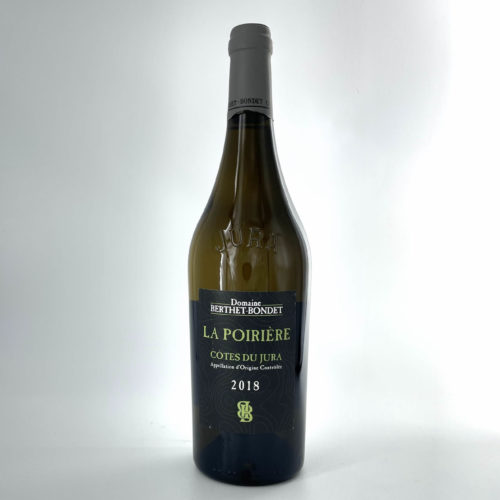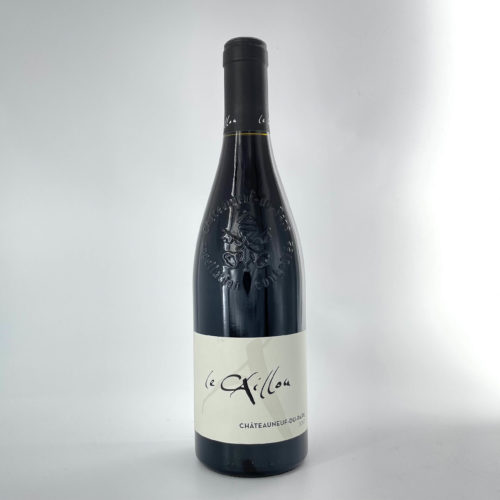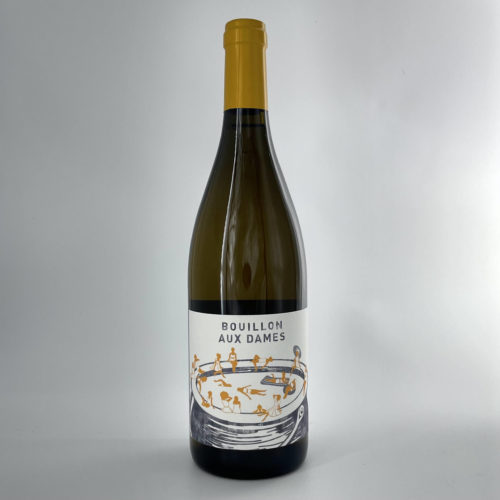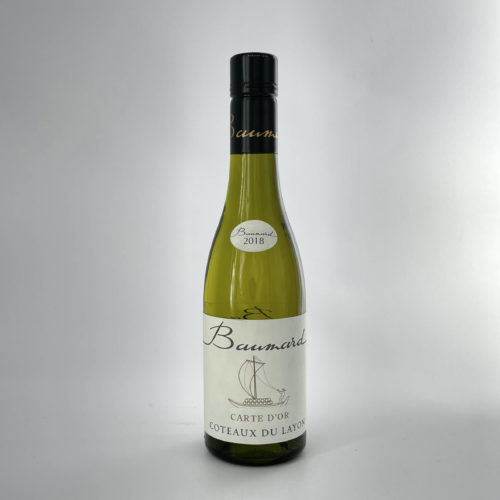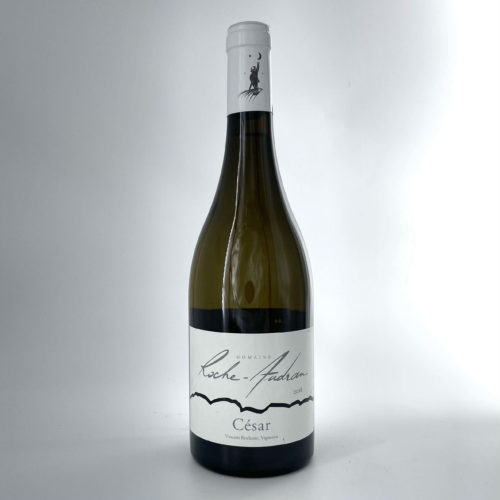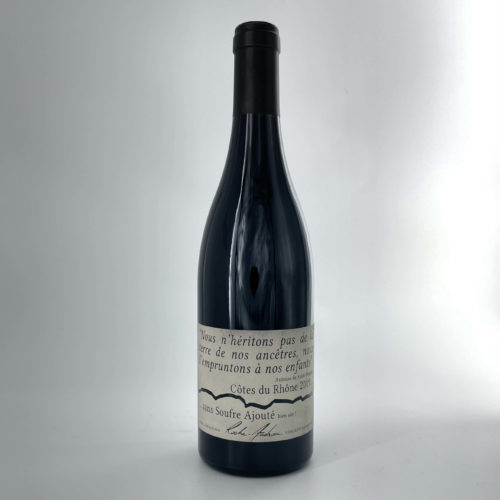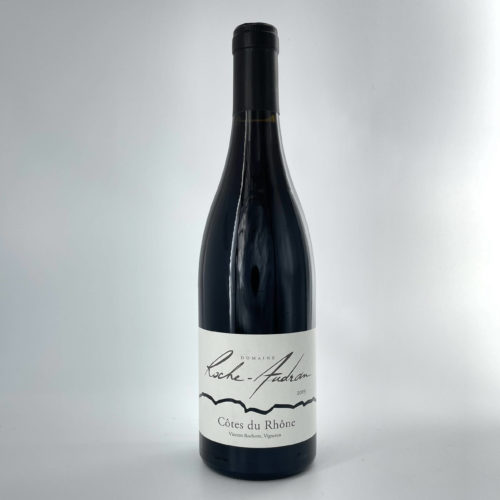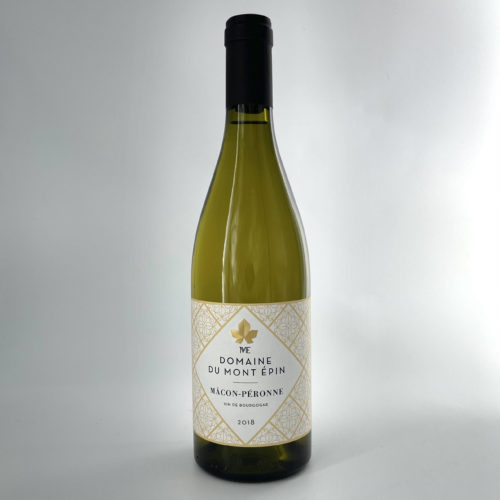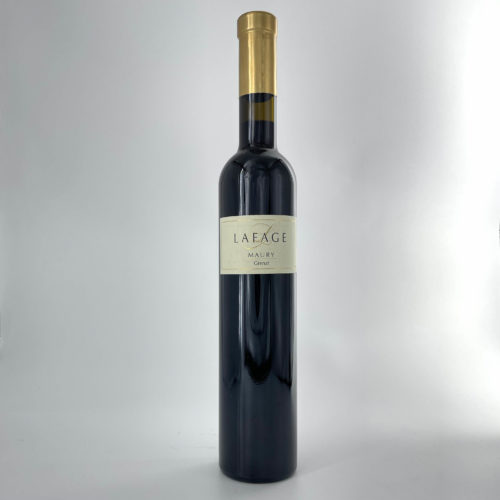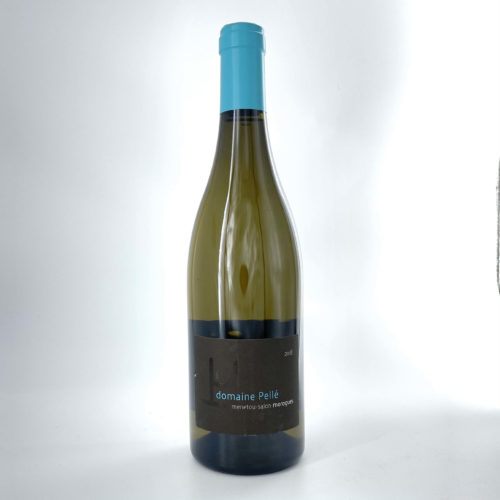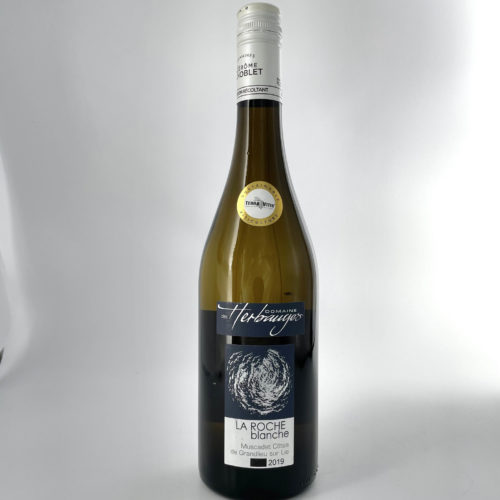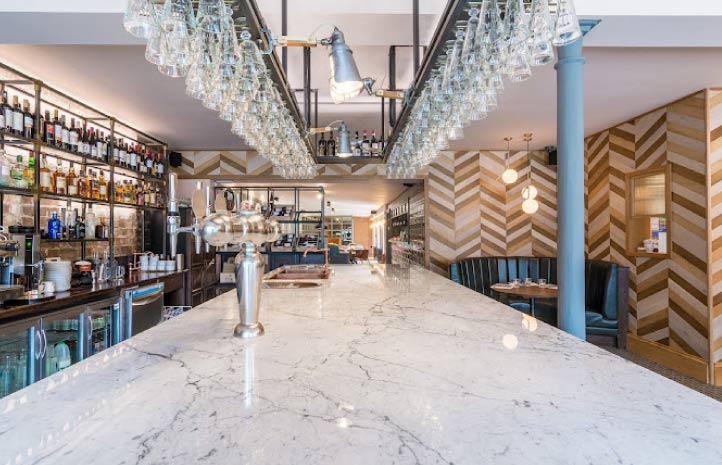Chardonnay Fleur de Charlotte, Vin de Pays, France
Along with the help of Floris Lemstra at Chateau Canet, we have successfully developed the ‘Fleur de Charlotte’ selection of wines that we believe offer excellent value for money. Floris and his team are best known for their Minervois production and in this case, they have utilised the same approach, based on attention to detail, in order to produce a range of fresh, clean and easy-drinking wines that offer excellent varietal examples
Chardonnay La Poiriere, Domaine Berthet Bondet, Cotes de Jura, France
Jean Berthet-Bondet has been working his land since 1984.
With a humble 15 hectares of 30 year old vines, this estate may well be small but it is steeped in history and heritage. Half of Jean’s land is in the Château Chalon appellation which is home to the Savagnin grape, renowned for making the revered Vin Jaune. A unique wine that has seen a resurgence of popularity in recent years, but has always been appreciated by the knowledgeable few.
Chateauneuf-du-Pape ‘Les Safres’ Caillou, S Rhone, France
The Clos du Caillou was founded in 1895 when Elie Dussaud settled there and created an old cellar. It started as a hunting retreat and it has a remarkable history which explains its exclusion from the Châteauneuf-du-Pape appellation upon its creation in the 1930’s. When government experts arrived at the Clos in 1936 to survey the land for its inclusion in the new appellation, they were met with armed resistance to prevent them entering the property as the secretive owners didn’t want their estate to be analysed. This is the reason for the seemingly inexplicable blank spot in the Châteauneuf-du-Pape appellation map. As a result, the Clos du Caillou is home to some of the most spectacular terroir classified as simply Côtes-du-Rhône. The estate was purchased in the mid-1950s by the Pouzin family who decided to plant vines on the land that had traditionally been designated for hunting. They also acquired a 9 hectare plot within the Châteauneuf-du-Pape appellation itself. In 1995, Sylvie Pouzin took on the estate from her father and began the process of converting the vineyard to biodynamic practices. They gained their official organic certification in 2010 and since then have gone on to grow their reputation for the production of outstandingly well-balanced wines with their signature, soft velvety tannins.
Chenin Blanc Bouillon aux Dames, Les Equilibristes, Languedoc, France
Les Equilibristes is the brainchild of this pair as they aim to produce one of a kind, quirky cuvees from small estates all across France. Most importantly, their central ideal is to fashion wines that possess the équilibre (‘balance’). Each year, they visit their grower friends and purchase a select amount of grapes from which they produce terroirs-driven, organic cuvees that express a clear identity and sense of place. The results are simply stunning, as Florent (the winemaker) uses little to no added sulphites and other minimal intervention techniques to allow the grapes to truly speak for themselves.
Coteaux du Layon, Domaine des Baumards, Loire Valley, France
One of the Loire’s most lauded producers, Florent Baumard has courted controversy by pursuing his own ideas and challenging the status quo.
In a deeply traditional region, Florent’s early adoption of screwcaps and different vine trellising systems marked him out as the enfant terrible of Savennières. His mantra now encompasses a belief in the individuality of each vintage, believing it should be made with minimal intervention to allow the wine to reflect its vintage and unique character. His Savennières from the famous vineyards of Clos St Yves and Clos du Papillon are rich, yet with a balance and elegance that are unrivalled. His top cuvée of ‘Trie Speciale’ is only made in very exceptional vintages when grape quality is optimal. It is a wine full of paradox, honeyed and yet dry, rounded and yet firm. The rich fruit, tremendous weight and concentration ensure that it is a thoroughly memorable experience.
Cotes du Rhone Cuvee Cesar, Domaine Roche-Audran, Southern Rhone, France
Vincent Rochette comes from a long line of grape growers rather than winemakers. In 1998, he bucked that trend by investing in a cellar and the necessary equipment to allow him to vinify his own grapes, which for five generations had been sold to other winemakers in the area. Vincent is an ardent believer in the benefits of biodynamics, fully converting his estate to follow that philosophy in 2006. He uses only natural products in the vineyard and carries out all his work in keeping with the cosmic cycles of the earth, not only among the vines but also in the cellar
Cotes du Rhone Nature, Domaine Roche-Audran, Southern Rhone, France
Vincent Rochette comes from a long line of grape growers rather than winemakers. In 1998, he bucked that trend by investing in a cellar and the necessary equipment to allow him to vinify his own grapes, which for five generations had been sold to other winemakers in the area. Vincent is an ardent believer in the benefits of biodynamics, fully converting his estate to follow that philosophy in 2006. He uses only natural products in the vineyard and carries out all his work in keeping with the cosmic cycles of the earth, not only among the vines but also in the cellar
Cotes du Rhone, Domaine Roche-Audran, Southern Rhone, France
Vincent Rochette comes from a long line of grape growers rather than winemakers. In 1998, he bucked that trend by investing in a cellar and the necessary equipment to allow him to vinify his own grapes, which for five generations had been sold to other winemakers in the area. Vincent is an ardent believer in the benefits of biodynamics, fully converting his estate to follow that philosophy in 2006. He uses only natural products in the vineyard and carries out all his work in keeping with the cosmic cycles of the earth, not only among the vines but also in the cellar
Macon Peronne, Domaine du Mont Epin, Burgundy, France
Richard and Stéphane Martin, the brothers behind Domaine de la Croix-Senaillet produce this wine. After freak weather patterns disrupted their harvest in 2015, they decided to take on two new vineyard sites in nearby Clessé. This allowed them to experiment with a different terroir, as well as expand their range with the incorporation of a number of new wines.
Maury Domaine Lafage, Rousillon, France
Located between the sea and the mountains, half way between Perpignan and the Mediterranean coast, Domaine Lafage is one of our favourite new discoveries. Six generation ‘vignerons’, Jean-Marc and Eliane carry on the Lafage tradition, maintaining their family style of balanced, elegant wines displaying up front fruit. Their hard work has been rewarded with many accolades and medals from the Guide Hachette. What makes their estate particularly interesting is the fact that they grow a wide range of grape varieties (16) and produce an eclectic and varied range of wine styles, from crisp, clean whites to rich, fortified reds
Mentou Salon Morogues, Domaine Pelle, Loire Valley, France
For a long time, Menetou Salon was viewed as the poor relation of nearby Sancerre. Producers such as Domaine Pellé have ensured that is no longer the case. Anne and Paul-Henry Pellé currently preside over the family estate, the 4th generation of the Pellé family to tend vines here. They farm in a truly sustainable manner and aim to communicate the unique expression of the Menetou Salon terroirs in each bottling. Their ‘Morogues white’ is a blend of 7 different parcels from the highest slopes of the appellation. This location ensures the vines, which are rooted in Kimmeridgian marl soils, are exposed to cool temperatures coupled with long sunshine hours
Muscadet sur Lie, Domaine des Herbauges, Cotes de Grandlieu, Loire valley, France
This family estate has been in production since 1864 and is now the largest single estate in the region.
The vineyards benefit from an exceptional microclimate; the warmth of the Atlantic brings spring early, while the huge Lac de Grandlieu acts like a giant storage heater through growing season. Fourth generation winemaker, Jérôme is committed to the sustainability of the vineyards as well as to the health of the vineyard workers he has even grassed over 100% of the vineyards to reduce the vigour of the vines and to soak up rain at harvest. Each terroir of Domaine des Herbauges expresses its own subtle nuances, and reveals specific particularities and characteristics of the AOC Muscadet Côtes de Grandlieu Sur Lie appellation.

